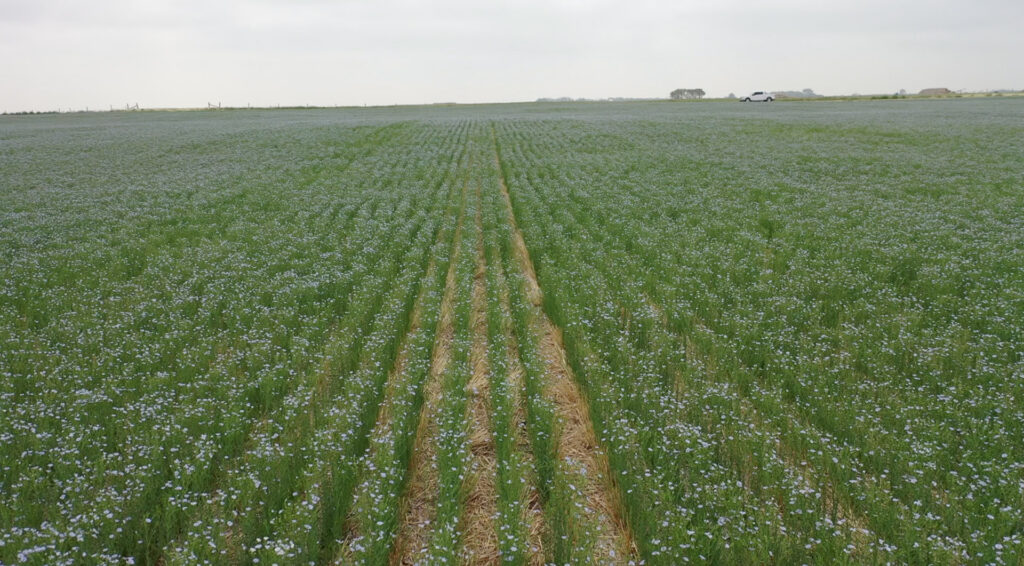
GHG Registry announces completion of first project

(July 15, 2022) GHG Registry is pleased to announce the completion of the first carbon offset project using the GHG0003 protocol, a leading agriculture protocol focused on the implementation of no-till practices to increase the organic matter in the soil.
The agriculture project included 8,920 acres of quality farm land in Saskatchewan, Canada, that adopted regenerative agriculture methods to store an additional total of 116,770 tonnes of carbon. The land in the project have been family farmed decades over two generations.
“We are extremely pleased to have worked with such a high-quality agriculture project,” explains Dr. Asim Biswas, one of the founders of GHG Registry. “Canada is a breadbasket for the world, and that has put farmers at the foundation of agriculture innovation, including climate re-balancing.”
GHG Registry’s protocol GHG0003 focuses on the implementation of reduced tillage practices to allow organic matter to increase in the soil. This boosts not only the soil health and productivity, but it also locks away substantial amounts of carbon.
This protocol looks at baselining a farm historically by looking 20 years backwards to identify management trends and existing carbon storage. Changes in carbon are then modelled through a combination of a research meta-analysis and existing carbon transfer models. Tillage practices are monitored through remote sensing.
The project was managed by CarbonTerra, a western Canada founded aggregator, with deep roots in farming and an understanding of the unique challenges in agriculture. After reviewing several protocols available, they adopted GHG0003 for this project.
“The GHG Registry GHG0003 protocol is a perfect fit for the western Canada farmer”, said Jason Mann, President of CarbonTerra. “By integrating technologies such as remote sensing, the protocol makes it easier for farmers to adopt and it allows them to spend more of their time focused on what they do best – farming.”
With the successful completion of this first agriculture project, and several additional projects under management using GHG0003, GHG Registry is looking forward to launching protocol GHG0004, which focuses on encouraging the planting and retention of tree shelterbelts.
“Pedigreed agriculture carbon credits will be an extremely important opportunity for emission offsetting, and with additional protocols introduced by GHG Registry we are looking forward to a long-term relationship with agriculture and Canadian farmers,” says Dr. Biswas. “Our vision is to bring balance to the earth’s climate, and our relationship with agriculture takes us one step closer.”
ABOUT GHG REGISTRY
GHG is a leading carbon offset registry, with the aim of building an equitable carbon credit system that allows participation from farmers around the world. Founded by scientists who are experts in the fields of agriculture, forestry, and blockchain, GHG strives to use the most advanced technology to create some of the highest-quality carbon assets on the market today. Using AI (artificial intelligence) pedometrics to replace soil sampling and a blockchain registry to ensure complete transparency, GHG is working to create and fund projects that lock carbon away and make a legitimate difference to our planet.
ABOUT CARBONTERRA
CarbonTerra, founded by farmers for farmers, is a market leading data and technology services provider focused on climate friendly farming practices. They believe that through generational changes to farm management, integration of technology and modern science protocols, agribusiness will lead the path to a positive climate.
They partner with Canadian farmers and landowners to produce some of the highest quality removal offsets by incorporating regenerative agriculture practices- proven additionally, generational permanence, science, and technology leading protocols, all leading to agriculture capturing carbon underground – naturally.
For more information on CarbonTerra visit them online at carbonterra.com
